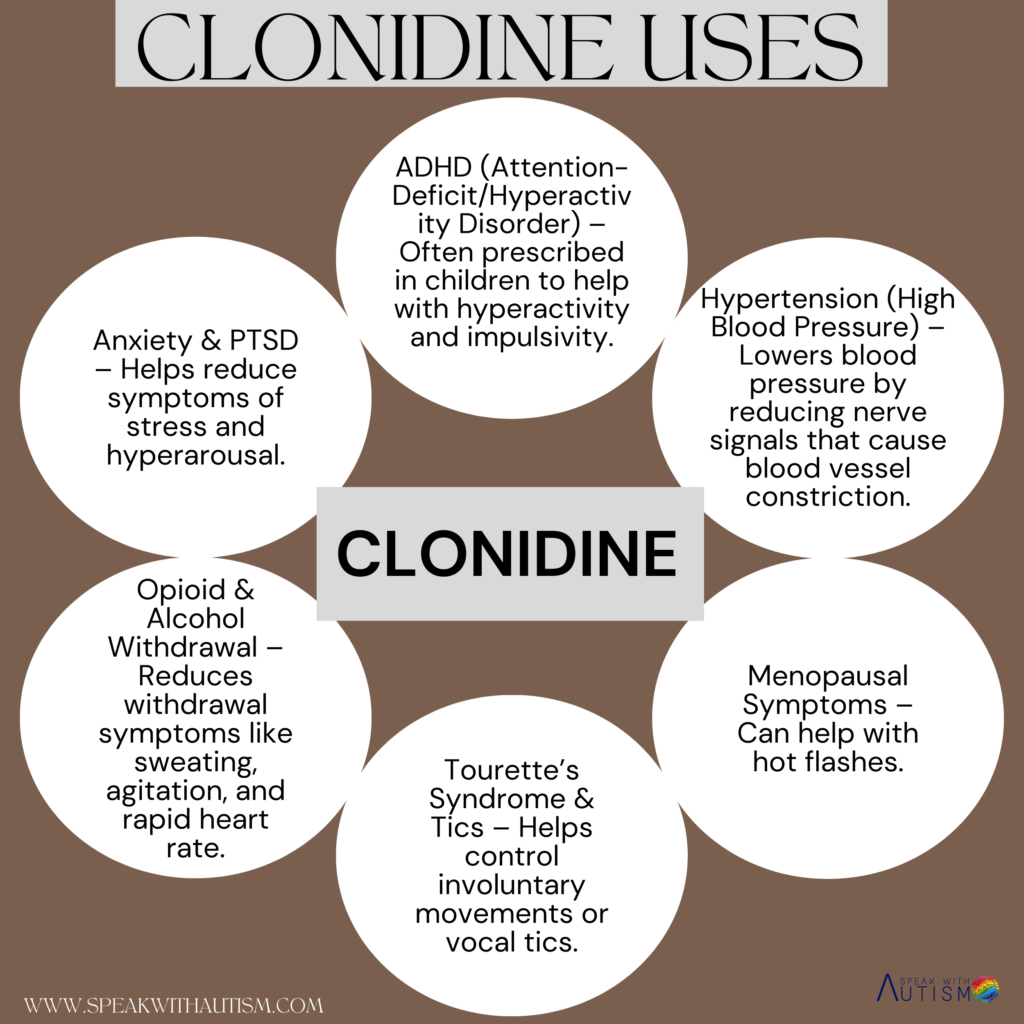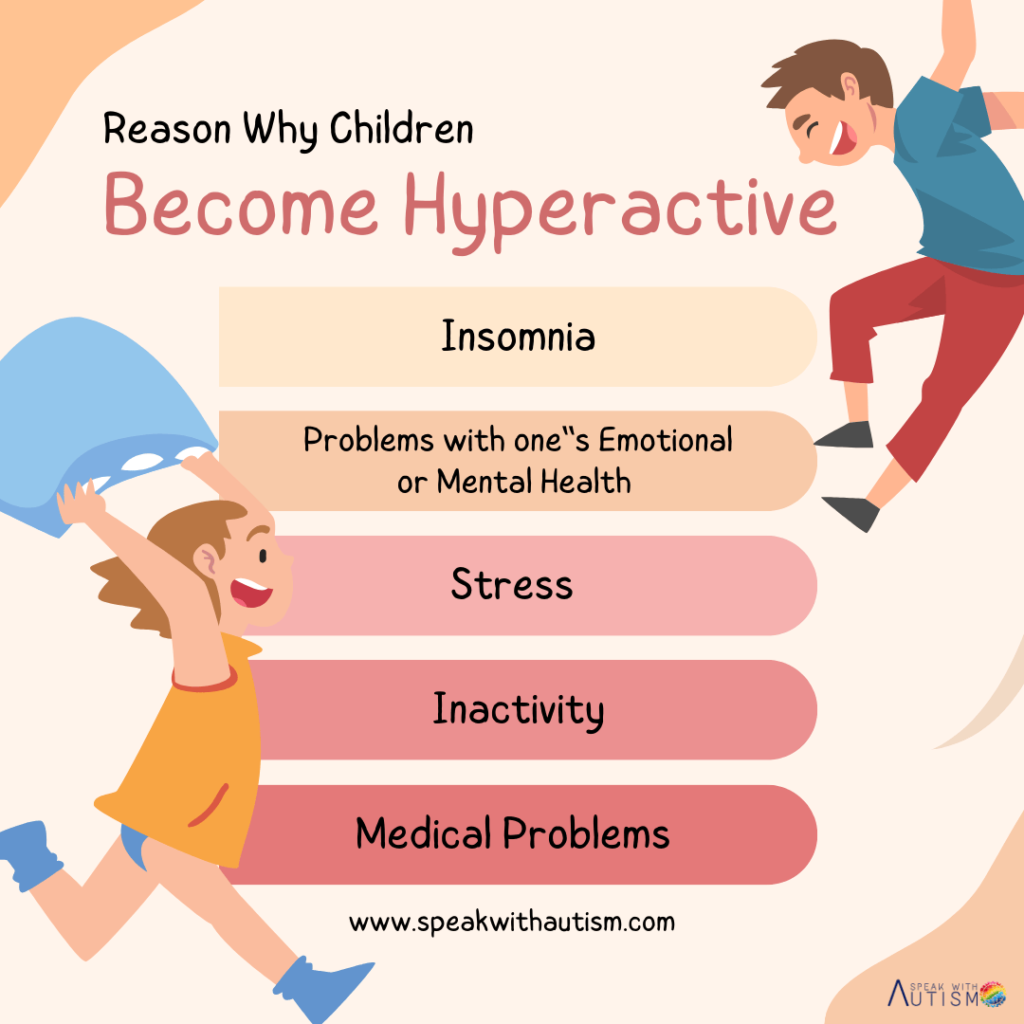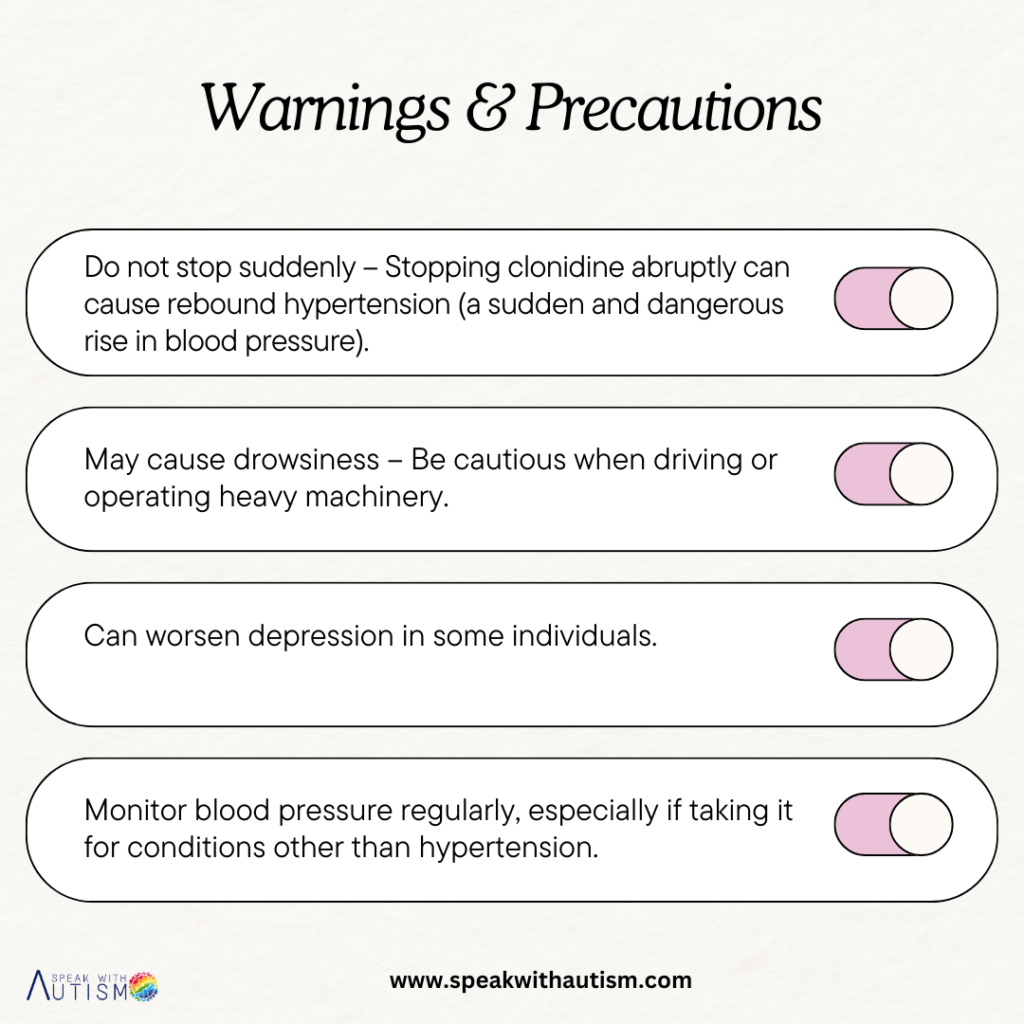Clonidine Uses in Autism: Clonidine is an antihypertensive (blood pressure lowering) drug that acts as an alpha-2 adrenergic agonist. This drug improves blood flow by relaxing blood vessels, thereby controlling high blood pressure and rapid heart rate. However, it is not only used for high blood pressure but also for other conditions, including challenges associated with autism and ADHD.
Table of Contents

Clonidine Uses in Autism
Children with autism spectrum disorder (ASD) often experience hyperactivity, impulse control problems, and sleep problems. Clonidine may be helpful in managing these symptoms.
1. Helpful in improving attention and behavior

- It helps in increasing the ability to focus in children.
- Effective in reducing hyperactivity.
- Helps reduce aggressive behavior and irritability.
2. Improves sleep problems
- Many children with autism have trouble falling asleep and waking up frequently at night.
- Clonidine induces sleep and regulates its cycle.
3. Controls impulsive behavior (impulse control)
- It helps balance decision-making and response.
- It may be helpful in reducing self-injurious behavior in some children.
Dosage and method of administration
- ✅The dose of clonidine is decided based on the child’s weight, age, and severity of symptoms.
- ✅It is usually started with 0.1 milligrams (mg), which can be gradually increased.
- ✅It is available in tablets and suspension (liquid form).
- ✅It can be given once or twice a day, usually before bedtime.
- ✅Dosage should only be taken as advised by a doctor.
Other Names of Clonidine
Clonidine is available under various brand names, including:
- Catapres
- Kapvay
- Arkamin
- Dixarit
- Nexiclon XR
Possible side effects of Clonidine
Taking clonidine can cause some side effects, including:
- Excessive sleepiness or lethargy (Drowsiness)
- Dizziness
- Fatigue and weakness (Fatigue)
- Constipation
- Dry mouth
- Severely lowered blood pressure (Hypotension)
If any serious side effects such as fast heartbeat, shortness of breath, or fainting occur, contact a doctor immediately.
Precautions and suggestions

- ✅This medicine should not be taken without the advice of a doctor.
- ✅Stopping it suddenly can cause imbalance in the body, so it should be stopped gradually.
- ✅It may interact with other medicines (Drug Interaction), so consultation with a doctor is necessary.
- ✅Clonidine should be used under special supervision if the child is taking other neurological or cardiac medications.
Conclusion
Clonidine may help improve problems associated with autism such as hyperactivity, attention deficit, and sleep difficulties. However, it should only be given under the supervision of a doctor, as incorrect dosage or uncontrolled use can cause side effects.
Frequently Asked Questions (FAQ’s)
Is clonidine medication for autism?
Yes, clonidine is used to manage symptoms associated with autism such as attention deficit, hyperactivity, impulse control problems, and sleep disturbances. However, it does not cure autism but helps control some of its symptoms.
What is the drug clonidine?
Clonidine is a drug that was primarily developed to treat hypertension. It acts as an alpha-2 adrenergic agonist and lowers blood pressure by affecting the nervous system. It is also used for other neurological disorders such as autism, ADHD, and sleep problems.
How long does clonidine take to work?
Clonidine can start showing its effect within 30 to 60 minutes after taking the tablet.
Its maximum effect is felt in 2 to 4 hours.
Its effect lasts for about 6 to 8 hours.
How does clonidine work?
Clonidine activates alpha-2 adrenergic receptors in the brain, reducing the activity of the nervous system. It:
✅Regulates blood pressure.
✅Slows the heart rate.
✅Reduces the excitability of the nervous system, thereby reducing tension and irritability.
✅Helps improve sleep.
✅Helps with concentration and impulse control.
Why is clonidine bad?
Although clonidine can be beneficial, it does have some potential side effects:
✅Excessive sleepiness or lethargy (drowsiness)
✅Dizziness
✅Fatigue
✅Constipation
✅Dry mouth
✅Severely low blood pressure (hypotension)
✅Heart rhythm abnormalities (bradycardia)
✅Rebound hypertension if the medication is stopped suddenly
How long does clonidine stay in your system?
The half-life of clonidine is about 12 to 16 hours.
This means that half of the drug is eliminated from the body in 12-16 hours.
It is completely eliminated from the body in 48 to 72 hours (2-3 days).
How long does clonidine stay in a child’s system autism?
Clonidine’s half-life may be slightly shorter in children, usually 8 to 12 hours.
This means that most children will be eliminated from the body in about 24 to 48 hours.
Clonidine may be eliminated more quickly because of its higher metabolic rate in younger children.
